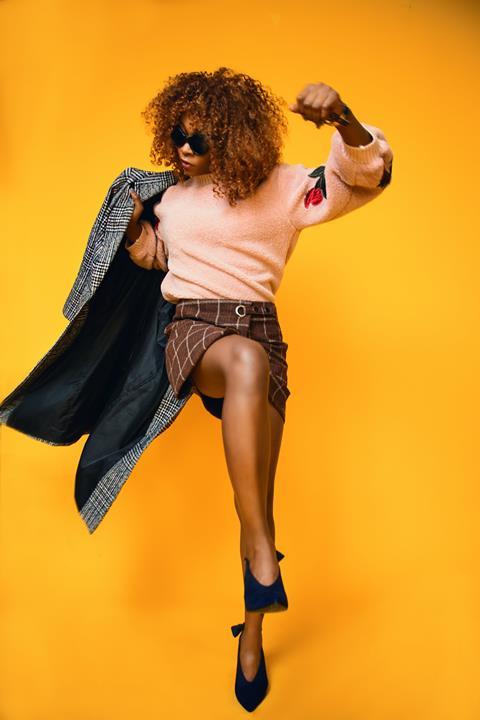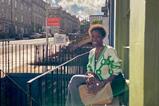On the final day of Black History Month, Woman Alive’s editor Tola-Doll Fisher reflects on the month and what it marks.

As Black History Month comes once more to an end, I’ve been wondering about the impact it is actually having. According to the ever-reliable Wiki, Black History Month is:
An annual observance originating in the United States, where it is also known as African-American History Month. It has received official recognition from governments in the United States and Canada, and more recently has been observed in Ireland and the United Kingdom. It began as a way of remembering important people and events in the history of the African diaspora.
I was still Black as a child 30 years ago but I don’t recall anyone celebrating my ethnicity back then. It’s intriguing then, as an adult to see how people and companies use the month of October to show… what? Solidarity? Alignment? Support? My Black friends working in white-majority organisations in the UK speak of BHM posters and stickers strategically placed in public spaces, presumably to let Black staff know that their lives are considered. Obviously Black lives matter as do the lives of all people of other ethnicities and cultural backgrounds. I occasionally wonder how they might be feeling about not having a designated time of celebration. Or perhaps they don’t care?
We had feedback from a few readers who felt that a column on ‘The Black Church’ was actually divisive.
We know our readers do. At the beginning of 2023 we invited a well-known media personality who has done tireless work in the Black community to write a regular column on what we termed, “The Black Church”. On the official website for BHM in the UK, the description for the month is as follows: “Black History Month 2023 is a momentous occasion to recognise and celebrate the invaluable contributions of black people to British society.”
This seems pretty inoffensive, right? And in giving space for Marcia Dixon to talk specifically about Black women in the Church, we met the brief for celebrating women (this year’s theme is “Saluting Our Sisters”. The organisers said: “The theme Saluting our Sisters pays homage to black women who had contributions ignored, ideas appropriated, and voices silenced).” But this presented some understandable issues for some of our non-Black readers. We had feedback from a few readers who felt that a column on “The Black Church” was actually divisive. They went on to say that they didn’t know whether that was for them to read and questioned whether “The Black Church” was any different from any other Church denomination.
Did you know that 65% of British black Caribbean women are single? And do you know why? Neither did I, until I read this article, and what I discovered was heart-breaking.
We published this feedback in the print issue of Woman Alive and it’s worth saying that I wasn’t surprised by it. In my experience as a Black woman, speaking about Black people as a separate group can be awkward for many people of non-Black origin. I’ve spoken before about modelling in my late teens to early 20s and being rejected by modelling agencies with the feedback: “We already have enough Black models on our books.” This is something someone with white skin will never have experienced so I understand it could be difficult to see the relevance in publishing articles which focus on one specific area of the Church. However, in her articles, Marcia shared valuable information about this growing sector. It’s well documented that there are more women than men in the Church therefore causing an issue with those who want to be married but not “unequally yoked”, but did you know that 65 per cent of British black Caribbean women are single? And do you know why? Neither did I, until I read this article, and what I discovered was heart-breaking.
In her opening article, Marcia wrote under the title: “Why should we care about the Black Church?” Why indeed. She goes on to say: “Many people associate Pentecostal churches with the branch of Christianity where people sing lively songs, clap their hands and wear colourful clothes. While this is one aspect of the black Pentecostal Church it’s much, much more than that.”
In many of the conversations about racism and discrimination, this column has shared information about the relationship between Black people and health (and why so many seem against vaccinations), the prosperity gospel, the pandemic of singleness/solo parenting and spiritual warfare. All of which seem to fall heavily on Britain’s Black Christian communities.
So, do I think it was a mistake to commission the Black Church series in a mainstream Christian publication? I don’t. But I do think our readers – and others who may have felt the same but not wanted to write in and say – made a good and valid point. There must be other ways to re-address the imbalance which is a result of colonialism and slavery and I will continue to look for ways to do that. I am a Black woman who manages an all-white team. We work to make sure Woman Alive is representative of all ages, locations, cultural backgrounds and relationship set-ups as well as ethnicity. And I believe we’re doing a good job. The question is, do you? I hope that Woman Alive will remain a safe space for all our readers, even if it makes us feel uncomfortable and/or challenged and maybe next year we can find a way to make celebrating BHM a win for all of us.
If ever in doubt about its existence, remember Leviticus 19.34: “The foreigner residing among you must be treated as your native-born. Love them as yourself, for you were foreigners in Egypt. I am the Lord your God.”




































2 Readers' comments